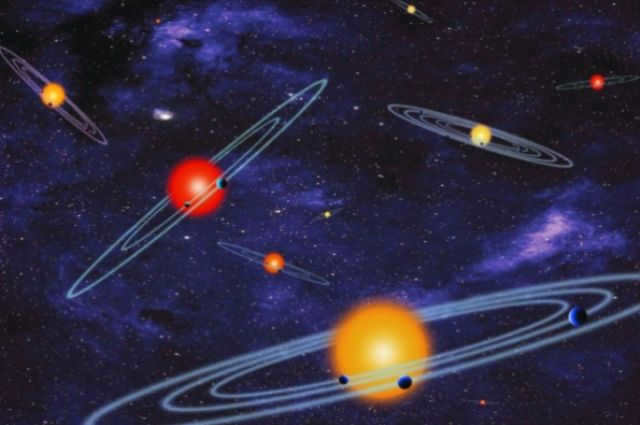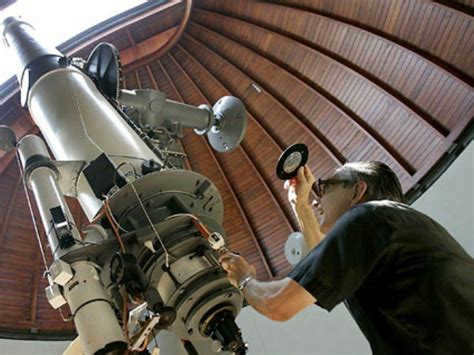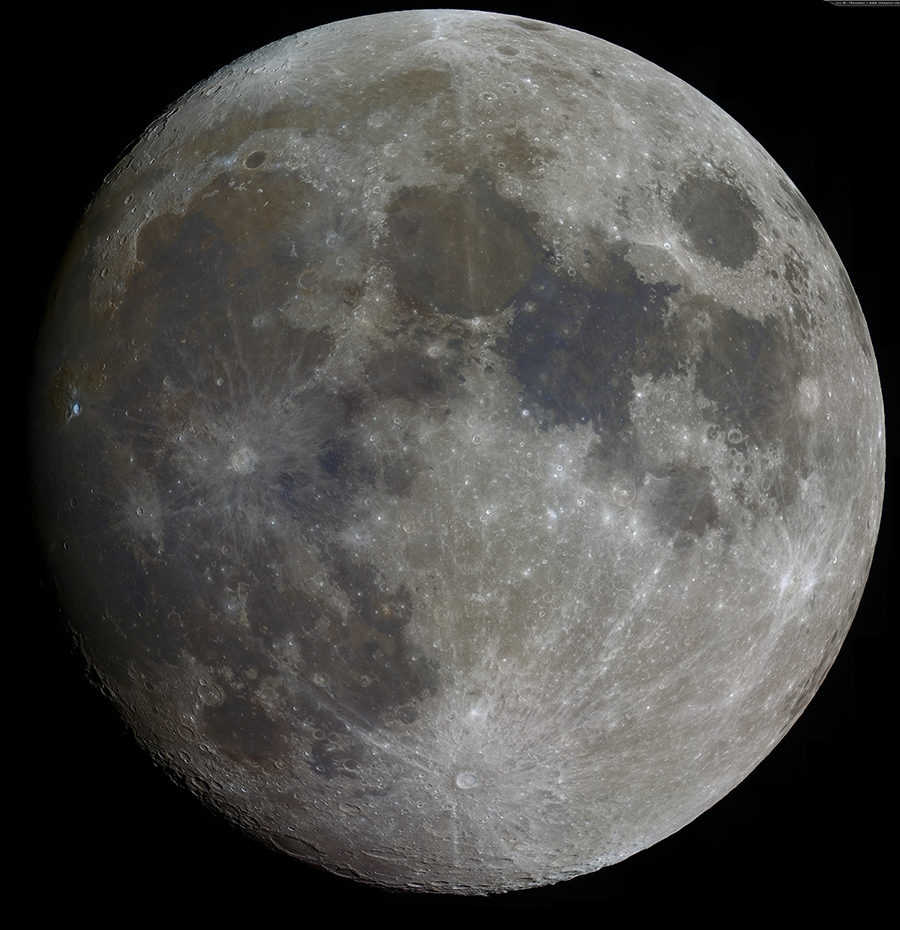
Our lives consist of numerous moments. We engage in our professions and adore our offspring. We travel to the southern regions and acquire feline companions. We expend our finances on items which, upon closer examination, are entirely unnecessary. However, there is a recurring query that individuals pose: what is the purpose of astronomy, and why is it necessary?
Those who pose this inquiry typically lack genuine interest in the current minor advancements and achievements in astronomical research. Primarily, their query pertains to the most fundamental aspects of astronomy. These individuals reason as follows: what is the benefit of acquiring additional knowledge about unimaginably distant stars and galaxies? How will it impact our everyday existence? What significance does it hold for our daily lives? Why allocate substantial funds towards large telescopes and your numerous Mars rovers? Why should I contribute taxes if scientists merely obtain abstract knowledge regarding phenomena unrelated to human beings? Why do we necessitate all of this equipment?
Is astronomy necessary? Is it really necessary to study astronomy?
At first glance, it appears that astronomy holds a unique position in comparison to other branches of science. There is little doubt about the practical significance of disciplines such as chemistry, biology, or physics. Their practical applications are evident and tangible, resulting in new medications, innovative materials, advanced devices and machinery, and groundbreaking technologies. Research and development in these fields lead to the creation of numerous products that enhance or transform our lives. Countless industries are built upon scientific findings, generating revenue and employment opportunities. But what about astronomy? What does it contribute? What value does it hold?
Astronomy is unique in that it primarily focuses on fundamental scientific research. However, this does not imply that the discoveries made in this field cannot later be applied in various practical applications.
Black body and lasers
There is a prime example: Max Planck. This renowned physicist pondered over the concept of blackbody radiation in 1900. It posed as a purely theoretical problem within the realms of physics and astronomy. Moreover, it was essential in comprehending the mechanisms behind stellar energy emission. Planck successfully tackled this conundrum by formulating an entirely novel description of radiation, which we now know as quantum mechanics. During the early years of the previous century, quantum mechanics was also an abstract and fundamental field of study. However, it eventually paved the way for a colossal industry. Countless modern technologies, such as computers and lasers, are built upon the foundational discoveries made in quantum mechanics. None of this progress would have been possible if the young Max Planck had not contemplated the celestial brilliance of stars!
There are numerous instances similar to this. Fundamental investigation, and thus the field of astronomy, has consistently unveiled what was initially purely theoretical information. However, it subsequently resulted in significant real-world implementations. Advancements are impossible without fundamental research. We undeniably require fundamental research. And along with it, the study of astronomy!
However, as previously mentioned, this is not the sole significance of astronomy for humanity. Because the world is not solely comprised of capitalists and consumers. The world primarily consists of individuals! And what defines our humanity? It is the very aspects that cannot be found on the shelves of a supermarket! We humans possess an insatiable curiosity. We yearn to comprehend the world in which we reside. Admittedly, from a strictly economic standpoint, knowledge of the distance between stars may not hold much value. Nevertheless, this does not deter us from continuously pondering this question throughout the centuries. We relentlessly search for ways to address this inquiry (and ultimately uncover its answer). Yes, comprehending the nature of black holes may be deemed “useless” – and yet we have devoted an immense amount of time to studying them. We simply desire and require knowledge of all this “useless” information! Because we are human beings! Not machines or animals driven solely by instincts.
We engage in astronomy for the same purposes as creating music. The same purpose as writing novels or creating paintings. At first glance, admiring the Mona Lisa, reading Goethe’s Faust, or attending a Tchaikovsky symphony may not seem “useful.” We do it because it brings us joy and enhances our humanity. The same goes for astronomy. Understanding the origins of our planet, our galaxy, and our universe, exploring the cosmos to comprehend our place in it – all of this is essential! Because we are human. And it is vital for us to always hold onto our humanity!
Undoubtedly, we have the option to discontinue our expedition of the Earth. We have the choice to disregard anything that cannot be instantly converted into economic or financial gains. Indeed, this decision will not result in the apocalypse, at least not instantly. However, it will significantly alter the world we live in. It will transform into a colorless and uninspiring world devoid of inquisitive and exploratory individuals….
That is precisely why the study of astronomy is indispensable!

Throughout history, humans have held a strong fascination with the mysteries of the universe. They have always been driven by a curiosity to uncover the secrets of the cosmos. And so, the study of the stars and celestial bodies came into existence, known as astronomy. This field of scientific inquiry can be traced back to the earliest civilizations, who sought to make sense of what they observed in the sky. As they gained new knowledge, it gave birth to various myths and legends in different cultures. Additionally, this knowledge of the celestial bodies was applied practically, with stars and the sun serving as navigational tools. The concept of time was also deeply influenced by astronomical observations, leading to the creation of the first human calendars, which were based on the lunar cycles.
But what is the relevance of astronomy in our modern world?
The Significance of Astronomy for Humanity’s Survival
Astronomy plays a crucial role in safeguarding the future of humanity by enabling us to anticipate and prepare for potential space hazards. Through extensive research, we have compiled a comprehensive inventory of celestial objects that pose a risk of colliding with our planet.
The field of astronomical science also enhances our understanding of Earth and its intricate conditions. Additionally, ongoing surveillance of celestial bodies enables us to identify potential resources that could sustain our civilization in the long run. Without the insights gained from astronomy, such vital discoveries would be exceedingly challenging.
Furthermore, the pursuit of space exploration is instrumental in expanding our knowledge of the universe. This relentless quest necessitates the development of cutting-edge technologies, which often yield groundbreaking innovations applicable across various fields of human endeavor.
Innovative Medicines
The groundbreaking work of a radio astronomer has led to the development of various cutting-edge medical imaging devices, including CAT scanners and MRI scanners. Additionally, software originally designed for analyzing satellite images has now found application in the early detection of Alzheimer’s disease by medical professionals.
One notable example is the AlzTools 3d Slicer program, which draws upon the expertise gained from the European Space Agency’s Envisat satellite. Furthermore, a charge-coupled device (CCD) is currently being developed to minimize X-ray exposure. It is worth mentioning that these advancements in medical technology actually originated in the field of astronomy back in 1976.
The Video Analysis System (VAS) aids intelligence agencies in the examination of video footage. It utilizes NASA’s VISAR technology for stabilizing and recording videos. Similar techniques are employed to enhance the quality of nighttime video recordings captured by a camera.
The military also employs Ultraviolet (UV) photon detection technology, originally developed by astronomers. It is utilized in electronic defense systems to counter missile attacks.
Furthermore, X-ray photon detectors originally designed for astronomical purposes are now employed in airports. Specifically, they are used in X-ray chambers. Additionally, a gas chromatograph initially created for studying the atmosphere of Mars is now utilized for the analysis of luggage, specifically for detecting explosives.
Advancements in Communications and other technologies
Many of the technologies utilized in space exploration are also being enhanced and utilized in various industries here on Earth. Take, for instance, gamma-ray spectrometers, which are employed to analyze the composition of airless celestial bodies like the Moon and Mars. These same spectrometers are now being employed to study the structural deterioration of historical buildings.
Furthermore, the CCD (charge-coupled device) mentioned earlier is also a key component in most cameras, webcams, and phones. It functions as a specialized sensor that captures images and converts them into a digital format. This technology was initially developed by Willard Boyle and George E. Smith for capturing astronomical images, for which they were awarded the Nobel Prize in Physics in 2009.
While astronomy may not directly impact every individual, our innate curiosity drives remarkable advancements in technologies that benefit life on Earth.

Scientists from the Institute of Applied Astronomy of the Russian Academy of Sciences have shared with “AiF-Peterburg” the significance of the academic discipline.
The reason behind the extinction of dinosaurs
"Astronomy is an incredibly expansive field that has the potential to revolutionize our understanding of the world we live in," expressed Dr. Eleonora YAGUDINA, a distinguished researcher at the institute. "Recently, a survey was conducted in St. Petersburg to gauge the public’s knowledge of basic astronomical concepts. Shockingly, one third of the respondents believed that the Sun revolves around the Earth. These results are disheartening in an era where knowledge is easily accessible. When I mention that I am involved in scientific research related to the Universe, people are immediately captivated. The subject matter is inherently fascinating! Currently, I am actively involved in mentoring children at the St. Petersburg Cosmonautics Club. After just six months of training, these young minds are able to grasp complex astronomical coordinate systems, in addition to excelling in physics and mathematics."

According to Nikolai ZHELEZNOV, a senior researcher at the institute. The lack of basic knowledge in astronomy leads to a fascination with pseudoscientific theories and various “armageddons”. Currently, there is a lot of talk about the mythical planet-star Nibiru, which supposedly is approaching Earth. There are numerous examples of hypotheses that have no basis in reality (and are often spread by certain media outlets). The lower the level of education, the more likely people are to believe in these sensational ideas.
Meanwhile, the study of space hazards undoubtedly takes a prominent position among astronomers.
“According to Zheleznov, our team is dedicated to addressing any objects that may pose a risk to Earth. Our main objective is to calculate the trajectories of these objects in order to prevent any potential collisions. While it may be impossible to deflect or destroy asteroids due to their high speed, it is crucial to maintain control over the situation by tracking these objects and providing warnings to the population.”
Experts predict that the Earth will not face any significant threats in the near future. However, one event that is certain to occur is the close approach of the 325-meter asteroid Apophis on April 13, 2029. This asteroid will pass our planet at a distance of only 32,000 kilometers from the surface, which is 15 times closer than the Moon. Interestingly, this celestial debris will be visible to the naked eye as it floats by, providing a unique opportunity for people to observe it. It’s worth noting that if Apophis were to collide with Earth, it would have devastating consequences, potentially wiping out an entire small country. Initially, when this object was discovered in 2004, there was a 4 out of 10 chance of it colliding with Earth according to the Torino scale. However, as of today, that probability has been reduced to zero.

“According to Nikolai Zhelezhnov, the Earth has had a noteworthy encounter with a highly perilous object, specifically a 10-kilometer asteroid, in its past. This event occurred approximately 65 million years ago during the conclusion of the Cretaceous period. The resulting impact created a crater known as Chicxulub, which can be found on the Yucatan Peninsula within the Gulf of Mexico. The diameter of this crater measures 180 kilometers. Notably, geological layers from this period contain an elevated concentration of iridium, a substance that is not typically found in such quantities on Earth. It is hypothesized that the extinction of dinosaurs on our planet may have been a consequence of this particular collision.”
Tips for Preventing Airplane Accidents
According to professionals, students who plan to pursue careers in modern technologies should consider studying astronomy. Astrometry, a specific field that focuses on precise coordinate-time and navigation, is particularly important.
"In the past, individuals used to determine their position by relying on the sun, and later on the stars," explains Alexander IPATOV, the scientific director of the institute. – Nowadays, all calculations are based on celestial objects, particularly quasars. Quasars are situated at the farthest distance from Earth, making them relatively stationary and ensuring stable coordinates, unlike the Sun or stars. The celestial coordinate system consists of approximately 3.5 thousand quasar sources, all of which are continuously observed, with their signals serving as reference points. The nature of quasars remains a mystery to modern science. Situated at the outermost reaches of the Universe, they emit an immense amount of energy".

Ipatov states that there is a high demand for an extremely precise earth coordinate system in a variety of fields. This includes geodesy and cadastre services, which require significant labor and economic resources. For example, in 2003, Germany and Switzerland were constructing a bridge on both sides of the Rhine in Laufenburg. When the two parts of the bridge met, it was discovered that the built structures had a height discrepancy of 54 centimeters. By implementing a precise coordinate system, such errors can be eliminated. Additionally, this system will reduce errors in the transportation industry, thereby preventing airplane accidents and shipwrecks.
When it comes to the future of astronomy, experts from St. Petersburg have informed us that these goals have remained consistent for many years. The Sun, the Moon, and Mars are among the highest-priority objects for study.
Based on NASA’s ambitious program, the first manned expedition to Mars could take place in 10 years. The Moon is also incredibly important as it serves as an intermediate station. The development of the Moon is a priority for major countries, including Russia. It is highly likely that by the 2020s, there will be a station on the Moon equipped with its own system for observing the stars. This will provide new opportunities for studying the Universe, from more accurate detection of meteorites to closer observations of exoplanets.
Related Articles:
It is widely recognized that the information acquired in the field of astronomy finds applications in various scientific disciplines, ranging from aerospace and energy sectors to medicine. Astronomy is commonly classified based on the specific celestial objects and phenomena it investigates, including solar systems, stars, galaxies, nebulae, and more.

Table of Contents
- Where is astronomy used?
- Why is astronomy necessary as a science?
- Why was astronomy eliminated?
- What does astronomy teach?
- What objects and phenomena does astronomy study?
- What knowledge does the science of astronomy provide?
- Why does a student need astronomy?
- What are the characteristics of astronomy?
- Can you become an astronomer after the 9th grade?
What are the applications of astronomy?
Astronomy is utilized in various fields such as navigation, aviation, astronautics, geodesy, and cartography to determine precise time and geographical coordinates. It also plays a crucial role in the exploration and development of outer space, as well as in the study of our planet from a space perspective.
Where can astronomers pursue their careers?
Astronomers typically work in observatories, scientific institutes, and research centers. Many also have teaching positions at universities. Additionally, there is a demand for these specialists in related industries such as IT and astronomogeodesy.
What issues does astronomy address?
These challenges include: the origin of the universe; the structure of the universe on a grand scale; the genesis of matter in the cosmos; what came before the initial expansion of the universe; what lies ahead for the future of the universe.
What are some professions related to astronomy?
The specific occupation of an astronomer depends on their area of expertise. There are various fields of specialization: cosmology, celestial mechanics and stellar dynamics, astrophysics, radio astronomy, physics of galaxies, stars, and astronomical instrumentation.
Why is astronomy relevant in the present day?
Astronomy encourages a global perspective. It encompasses the study of evolution, physics, chemistry, meteorology, and also addresses topics such as the movement of celestial bodies and the formation and development of the universe.”
Astronomy undeniably holds both cognitive and practical significance. This scientific field has contributed to the development of various systems, such as time measurement, calendars, methods for determining geographic coordinates through celestial coordinates, and more.
When it comes to salaries, graduates specializing in Astronomy in Russian universities earn an average of 30,083 rubles per month.
Now, let’s explore the salary of an astrophysicist.
Graduates of the program at KFU, specifically in Kazan, earn an average salary of 81,310 rubles per month. This exceeds the national average salary for program graduates in Russia, which stands at 30,083 rubles per month.
What led to the removal of astronomy?
However, due to the economic situation and financial constraints in the Soviet Union, the study of astronomy had already diminished in schools. As a result, in 1993, astronomy was eliminated as a mandatory subject in Russian schools.
What can be learned from astronomy?
Astronomy is the study of various celestial objects such as stars, planets, comets, and more. Astronomers are the scientists who are engaged in this field of science.
Which occupations are not in high demand?
- Positions in the civil service, including policemen and inspectors.
- Insurance agents.
- Network sales trainers.
- HR managers and recruiters, which is a direct consequence of the economic crisis.
- Lawyers.
- Graphic designers.
- Economists.
- A long time ago, the term “lecturer” used to refer to a unique form of entertainment for workers, rather than someone who teaches at a university or gives public lectures.
- Ice trucker
- Rafter
- Lantern operator
- Telephone operator
- Conveyor worker
- Farmer
- Travel agent
- Medical Diagnostic Specialist
- Dispatcher and logistician
- Navigator (driver)
- Tour guide
- Translator
- Print journalist
- Stenographer, transcriber, proofreader
- Bank teller, cashier
What does astronomy study?
Astronomy is a scientific discipline that explores the objects and phenomena within the vast universe. While the universe itself is considered eternal, its individual components, such as the Earth, planets, the Sun, and stars, are in a constant state of change and evolution. Astronomy seeks to understand the complex laws that govern these celestial bodies, their motion, structure, origin, and development.
Where can one pursue studies in astronomy?
In Russia, there are several universities that offer programs in astronomy. These include St. Petersburg University (SPbSU), Moscow State University (MSU), Ural Federal University (UrFU), and Kazan Federal University (KFU).
What is the salary range for astronomers?
Upon graduation from astronomy programs in Russian universities, the average salary for graduates in this field is approximately 30,083 rubles per month.
Astronomy is the study of celestial objects such as the Sun, stars, planets, comets, meteor bodies, nebulae, star systems, and the various forms of matter that exist in the space between stars and planets.
What is the importance of astronomy for school students?
The primary significance of astronomy in schools is that it provides a comprehensive and genuine understanding of our place in the universe and how it functions. Astronomy serves as a powerful defense against the spread of misinformation about the structure of the world, which unfortunately, is prevalent in the media and online platforms today.
Why should students learn about astronomy?
Astronomy is a discipline that offers a holistic perspective, enabling students to comprehend their position in the vast expanse of the universe.
What knowledge can be gained from studying astronomy?
Astronomy explores various celestial bodies such as the sun, stars, planets, satellites, comets, meteors, nebulae, star systems, and the diverse matter that occupies the space between stars and planets, regardless of its state.
What distinguishes astronomy?
Astronomy sets itself apart from other scientific disciplines through its observational nature, as it does not lend itself to experimental studies. The focus of astronomy lies in studying the vastest entities in our universe, including planets, stars, nebulae, quasars, galaxies, galaxy clusters, and the incredibly long processes that span millions and billions of years.
How is astronomy interconnected with physics?
Physics and astronomy share a close relationship. Throughout history, astronomy has been intertwined with our understanding of Earth. For instance, both the Moon’s orbit around Earth and the gravitational pull responsible for objects falling on Earth stem from the same fundamental force – gravity.
Can you pursue a career in astronomy after completing 9th grade?
Embarking on a career as an astronomer typically requires obtaining a higher education. Aspiring astronomers usually pursue specialized degrees at national universities, focusing on disciplines such as mechanics and mathematics or physics and mathematics.
How does the work of an astronomer contribute to society?
The profession of an astronomer serves various important purposes. Firstly, astronomers strive to determine the existence of life on other planets and assess the plausibility of extraterrestrial invasions. Additionally, through extensive calculations and analysis, these experts make predictions regarding potential changes in life on Earth due to external factors.
What subjects are essential to study for aspiring astronomers?
Here is some important information about the profession of an astronomer. The field of astronomy encompasses various disciplines, such as astronomical instrumentation, cosmology, celestial mechanics, stellar dynamics, astrophysics, physics of stars and galaxies, radio astronomy, and more.
Watch this video to learn about the practical applications of astronomy.
Did our responses prove to be helpful?

Education Minister Olga Vasilyeva has announced that astronomy will be reintroduced into school curricula starting from the next academic year. This initiative was also supported by Viktor Sadovnichy, the Rector of Moscow State University. In April of this year, Roscosmos also expressed its support for the idea. So why is it important for modern children to study astronomy? I asked Yuri Bobrinev, a physics teacher at Moscow Gymnasium No. 1514 and the winner of the “Teacher of the Year of Moscow-2009” contest.
Transforming it into strenuous work is not necessary
Yulia Borta, “AiF”: Yuri Vladimirovich, what advantages will contemporary practical-minded youngsters gain from observing celestial bodies?
However, astronomy also holds significant importance in terms of worldview. When contemplating the vastness of the Universe, one is forced to consider their place within it. In our current society, which is predominantly focused on practicality and materialism, it would be beneficial to acknowledge that there is more to the world than just commercial and economic relationships.
Merely adding another mandatory subject to the curriculum may lead students to seek ways to evade it rather than truly engaging with the subject matter in order to comprehend the vastness of the cosmos.
– Is it feasible to capture children’s interest in this topic without turning it into another monotonous subject?
– The addition of a new subject to the school curriculum is a matter of great importance. One of the primary reasons for this is that students are already incredibly busy. The amount of information that students receive nowadays is on a completely different level and scale. Many subjects in the curriculum require a much deeper understanding than they did 20 years ago, and this is something that needs to be taken into consideration. Additionally, it is worth noting that many schools have implemented five-day weeks in order to provide students with an extra day off. However, a five-day week does not allow for additional and in-depth study of any subject. At the very least, students should be able to master the compulsory curriculum to a satisfactory level within a five-day week with a two-hour program. It is nearly impossible to adequately prepare a student for exams under these conditions. So where would we find the time to add astronomy? If we simply include another mandatory subject in the curriculum, students will likely try to find ways to cut corners in order to “cover all the bases”. As a result, our efforts to provide a valuable education will not result in teaching astronomy, but rather in teaching students how to cheat the system.
In order to avoid monotonous work, we must be willing to make sacrifices. This is the law of conservation. But which subject should we give up? Let’s hypothetically remove literature and replace it with astronomy – but will this truly broaden our worldview? Alternatively, we could eliminate physics and focus solely on astronomy (which is undeniably fascinating!) – would this yield better results?
Therefore, the inclusion of astronomy in the school curriculum is a matter that necessitates serious consideration. We frequently experience ideological shifts, and throughout my extensive tenure in education, I have witnessed this happen on numerous occasions. When the “rules of the game” change so frequently, individuals struggle to keep up and adapt.

Experience it, not just read about it
– What is the ideal grade level for teaching astronomy?
– It really depends on the depth of the material we want to cover. If we are talking about the fundamentals of modern astrophysics, it’s clear that it’s a complex subject that children can only grasp around 10th or 11th grade. However, students in 5th or 6th grade can still get introduced to the basics of observational astronomy.
Here’s another point to consider. In my view, children initially comprehend the world through their senses, and only then through their intellect. As a result, when teaching science subjects – unless we are dealing with a specialized class of already motivated students – it is crucial to engage children not just through auditory means, but also visually and experientially. Our aim should be to demonstrate to kids the vastness and fascination of the world, allowing them to physically interact with everything and make conscious choices about their future pursuits. And this should be done in a live setting, rather than relying on animated screens. Today’s children are well aware that computers can create realistic fictional scenarios, and they may not fully believe in the authenticity of what they see on a screen. However, providing them with a chance to experience the wonders of nature is an entirely different level of “awakening,” starting with the simple act of taking them outside of their urban environment or bringing them to a planetarium. Why? Because the world must first be experienced in order to be truly understood. And once you have that experience, the desire and love to explore it naturally follow.
In order to effectively teach astronomy, it is important to adequately prepare oneself. While there may be some talented teachers who possess the creativity and skill to do so, it is also possible for a more directive and mass approach to result in a standard and uninspiring experience. Simply adding an additional hour of mandatory lessons with a multiple-choice test at the end may not suffice.

– Have textbooks become obsolete now?
– The classical astronomy textbook by B.A. Vorontsov-Vel’yaminov is excellent, it was and still is. Because the fundamentals of observational astronomy have not changed much. And if we are talking about modern astrophysics, then, of course, there are quite different concepts there. However, in my opinion, a skilled teacher will be able to teach with any textbook, and no textbook will help an ineffective one. Again, the whole question is at what level we want to teach, how deeply do we want to delve into the school curriculum? What end result do we want to achieve?
– The school is primarily about its people, who are its most delicate and sensitive component. Therefore, it is crucial to carefully consider any changes before implementing them. Reforms to the school curriculum have a direct impact on society and can have rapid effects. That is why we should not take school subjects lightly: removing them one day due to perceived insignificance, only to include them the next day, and then removing them again due to overload. This is a situation we would like to avoid.





